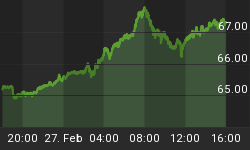The most obvious difference between "rich" and "poor" countries is that the former provide health care for most or all of their lucky citizens. At least they used to:
Obese patients and smokers banned from routine surgery in 'most severe ever' rationing in the UK
(Telegraph) – Obese people will be routinely refused operations across the NHS, health service bosses have warned, after one authority said it would limit procedures on an unprecedented scale.
Hospital leaders in North Yorkshire said that patients with a body mass index (BMI) of 30 or above – as well as smokers – will be barred from most surgery for up to a year amid increasingly desperate measures to plug a funding black hole. The restrictions will apply to standard hip and knee operations.
The decision, described by the Royal College of Surgeons as the "most severe the modern NHS has ever seen", led to warnings that other trusts will soon be forced to follow suit and rationing will become the norm if the current funding crisis continues.
Chris Hopson, the head of NHS Providers, which represents acute care, ambulance and community services, said: "I think we are going to see more and more decisions like this.
"It's the only way providers are going to be able to balance their books, and in a way you have to applaud their honesty. You can see why they're doing this – the service is bursting at the seams."
The announcement is the latest in a series of setbacks for patients who are facing rolling strikes by junior doctors that threaten to cripple the health service as winter approaches.
The decision by Vale of York Clinical Commissioning Group (CCG) comes amid increasing limits across the NHS on surgery for cataracts as well as hip and knee operations.
Under the latest restrictions, patients in the catchment area who have a BMI of 30 or more will be barred from routine surgery for non-life-threatening conditions for a year, although they may secure a referral sooner if they shed 10 per cent of their weight.
A BMI – weight in kilograms divided by height in metres squared – of 30 is the point at which a person is classed as obese and, on current estimates, more than half the population could be classified as such by 2050.
Smokers who refuse to quit will have planned operations postponed for six months, but may be included on surgeons' waiting lists earlier by proving they have given up for at least eight weeks.
The ban will not apply to cancer patients, or those with some conditions that could becoming life-threatening, or if exceptional circumstances can be shown.
The restrictions echo others made by health bosses in Hertfordshire, the North West and London in the past two years, where blanket referral bans were imposed on patients on the basis of their weight.
The UK is not an outlier. Most government-run health care systems face similar budget implosions. See No end in sight to Ontario's health-care crisis.
Here in the US, meanwhile, the current system seems to be, um, heading in the wrong direction. See These States Are Facing Huge Obamacare Premium Hikes in 2017.
Now, it's possible that there's simply no way to do universal healthcare with today's level of medical technology. As our understanding of various illnesses improves, treatments are being developed that, initially at least, manage rather than cure. This prolongs life but at astronomical, possibly ruinous cost.
But the fact that the past three decades' debt binge has left the developed world with negative operating cash flow is undeniably the main culprit. When even day-to-day operations can't be funded with tax revenue, governments find themselves rationing everything to deal with "unforeseen" crises, of which there is always at least one bubbling up. So nothing is adequately funded. Pensions, for instance, are unsustainable virtually everywhere. See Welcome to the Third World, part 18: Pensions overwhelm public services.
In systems where health care is a government-provided service, you get doctor strikes and ever-more-extreme rationing, as in the UK. Where markets still operate, the result is complexity, corruption and soaring insurance premiums, as in the US.
And so a lifestyle that rich-country citizens, for one golden generation, came to see as their birthright, is squeezed and gradually extinguished. Police protection declines in functionally-bankrupt cities like Chicago, health care is rationed in countries like Britain, and life gets harder for almost everyone. Which, to restate the moral of this series, is exactly what one should expect from a system where governments have the power to create their own money.















